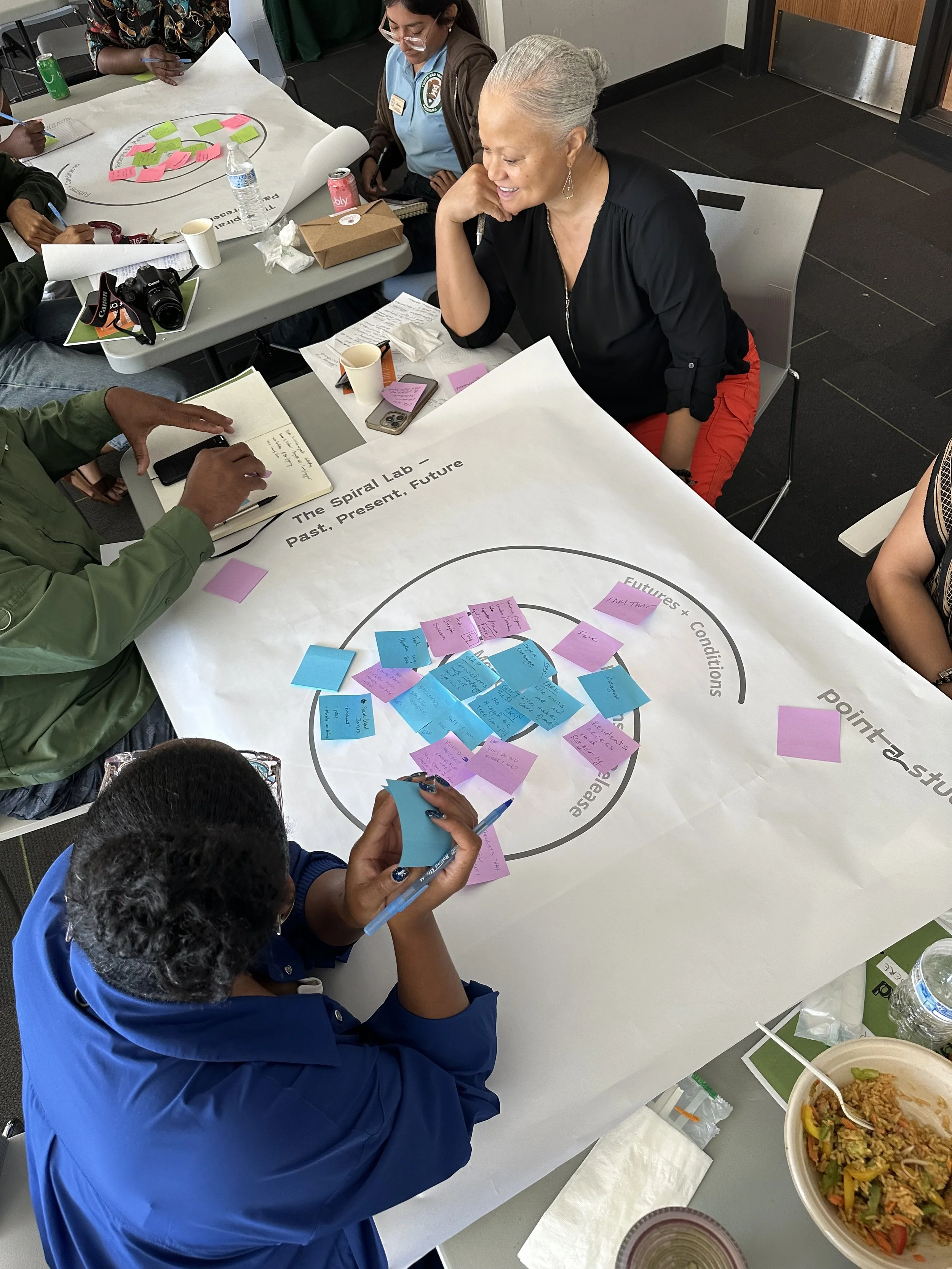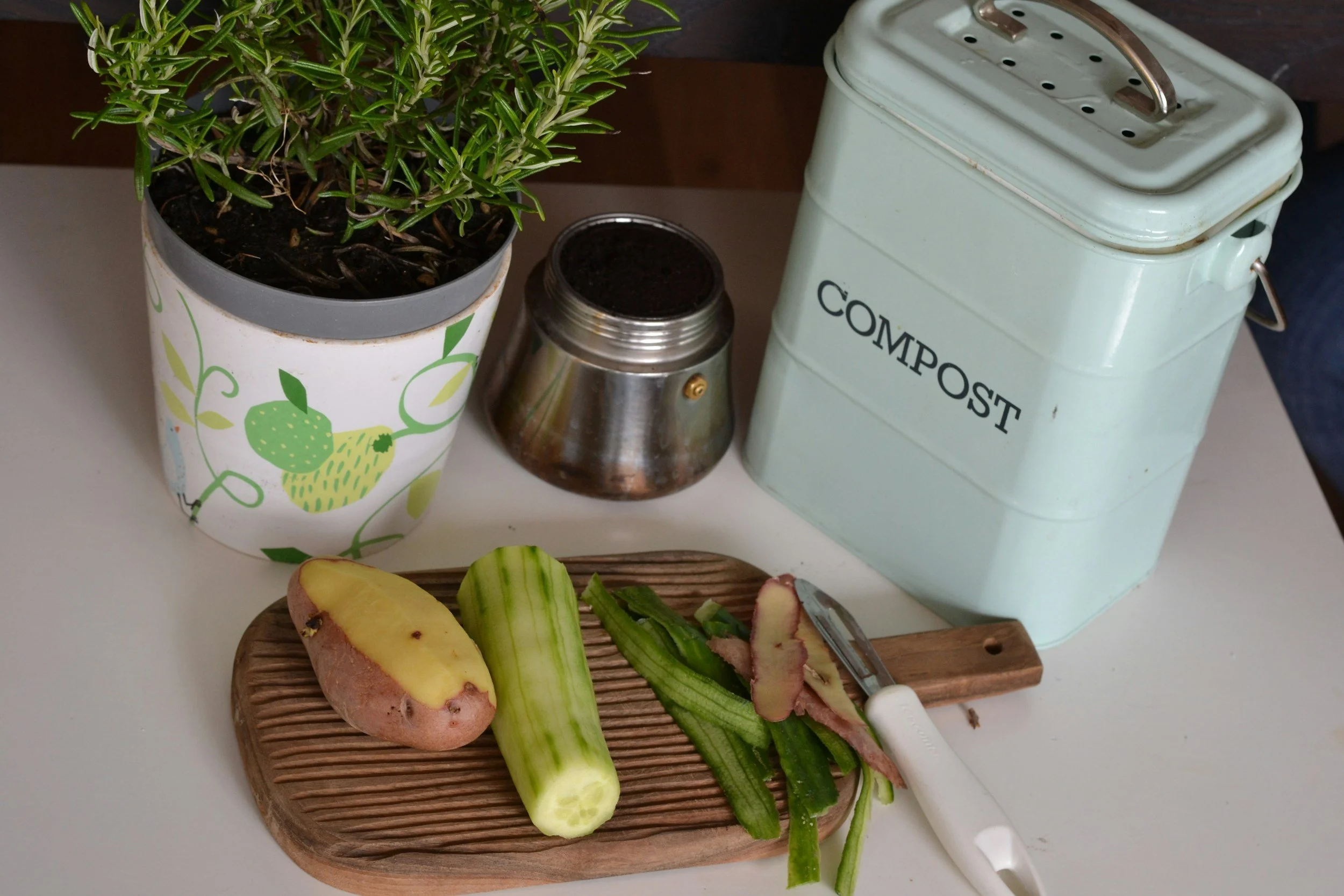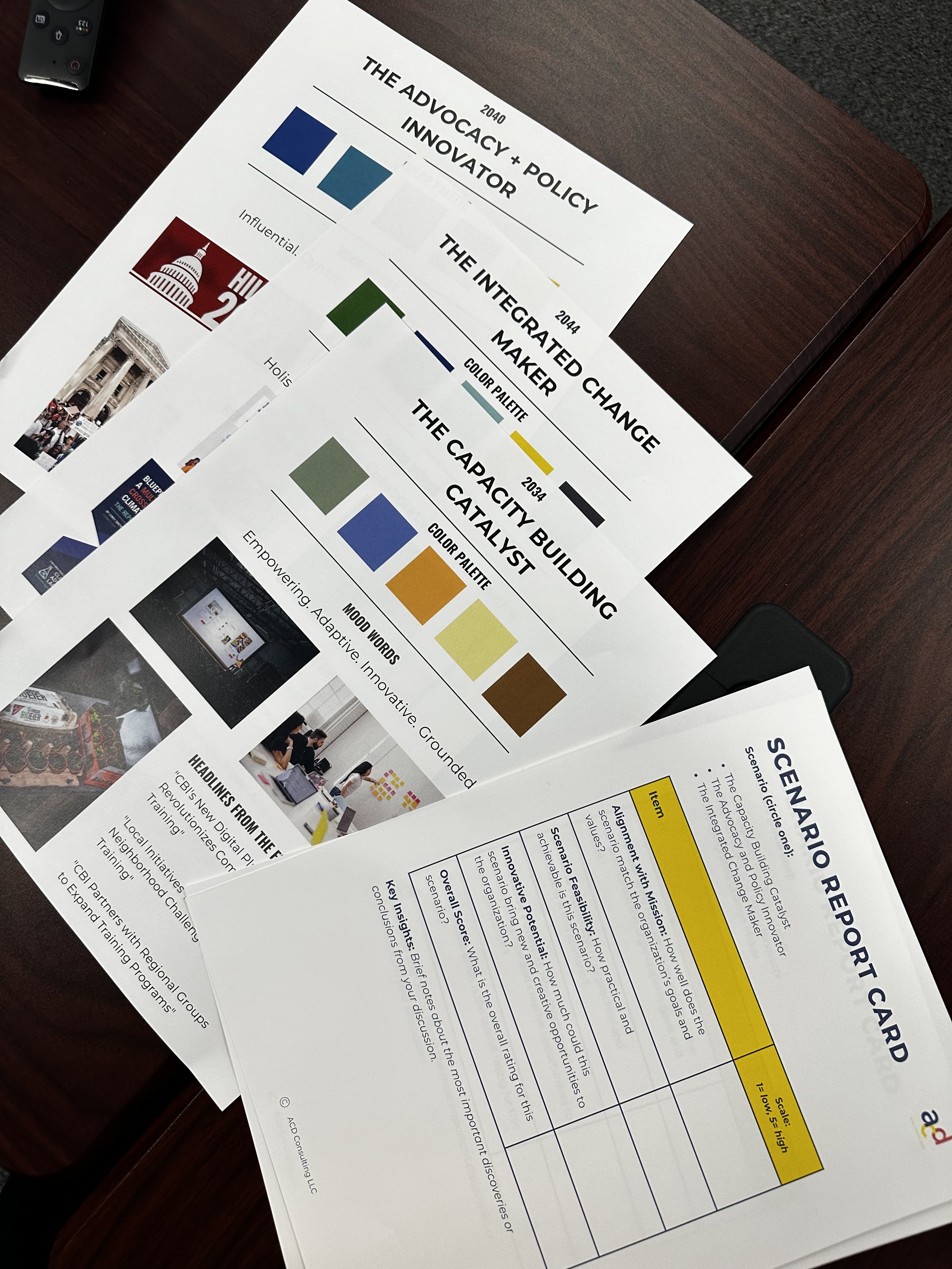
Analog Version: What If the Park Dreamed Back?
In this analog Spiral Lab, participants began with billion-year-old rocks as companions, listening to the park as both witness and author. Together, they named griefs and gifts, released patterns of harm, and imagined futures worth inheriting—from truth-telling and repair today, to healing and belonging across generations.

Futures Line: What if the Park Dreamed Back?
What if a park could dream?
At the Our Parks × TEN Baltimore Symposium, we invited participants to listen with the land and imagine Baltimore’s Leakin Park in the year 2075. Their future-voicemails became the first Futures Line recording—a layered soundscape and foresight artifact that carries themes of healing, belonging, and stewardship.

Composting What No Longer Serves: Organizational Lessons for a Time of Reckoning
In a moment of cultural rupture—where authoritarianism is rising, polarization deepens, and public trust frays—organizations across sectors are grappling with a hard truth: many of our strategies, structures, and assumptions no longer serve us. The world is changing, but the ways we work often aren’t keeping pace.

From Input to Interbeing
If regenerative participation is to become a meaningful part of foresight, we must expand our understanding of what foresight practitioners do—and how we show up.
We are not extractors of insights or deliverers of predetermined scenarios. We are gardeners, composters, and stewards of living processes. Our work is less about directing movement and more about cultivating the conditions for emergence, belonging, and transformation.

Beyond Fairness: Seeding New Possibilities for Our Future
…when we talk about “fairness,” we might unintentionally limit our thinking to a transactional model—balancing scales, distributing harm, and managing resources. Fairness, as a frame, feels safe. But it’s also static. It doesn’t invite us to question the very systems that created the inequities we’re trying to address.

The Importance of Imagination and Visualization in Futures Work
Recently we had the honor of guiding 200 Boys and Girls Club leaders through a transformative experience, helping them to imagine a workday in 2044.

The Power of Scenario Planning: Insights from Our Work with Community Building Initiative
Recently, we had the privilege of partnering with Community Building Initiative (CBI) to explore their potential futures and develop strategic scenarios that help to inform their growth and impact over the next two decades.
